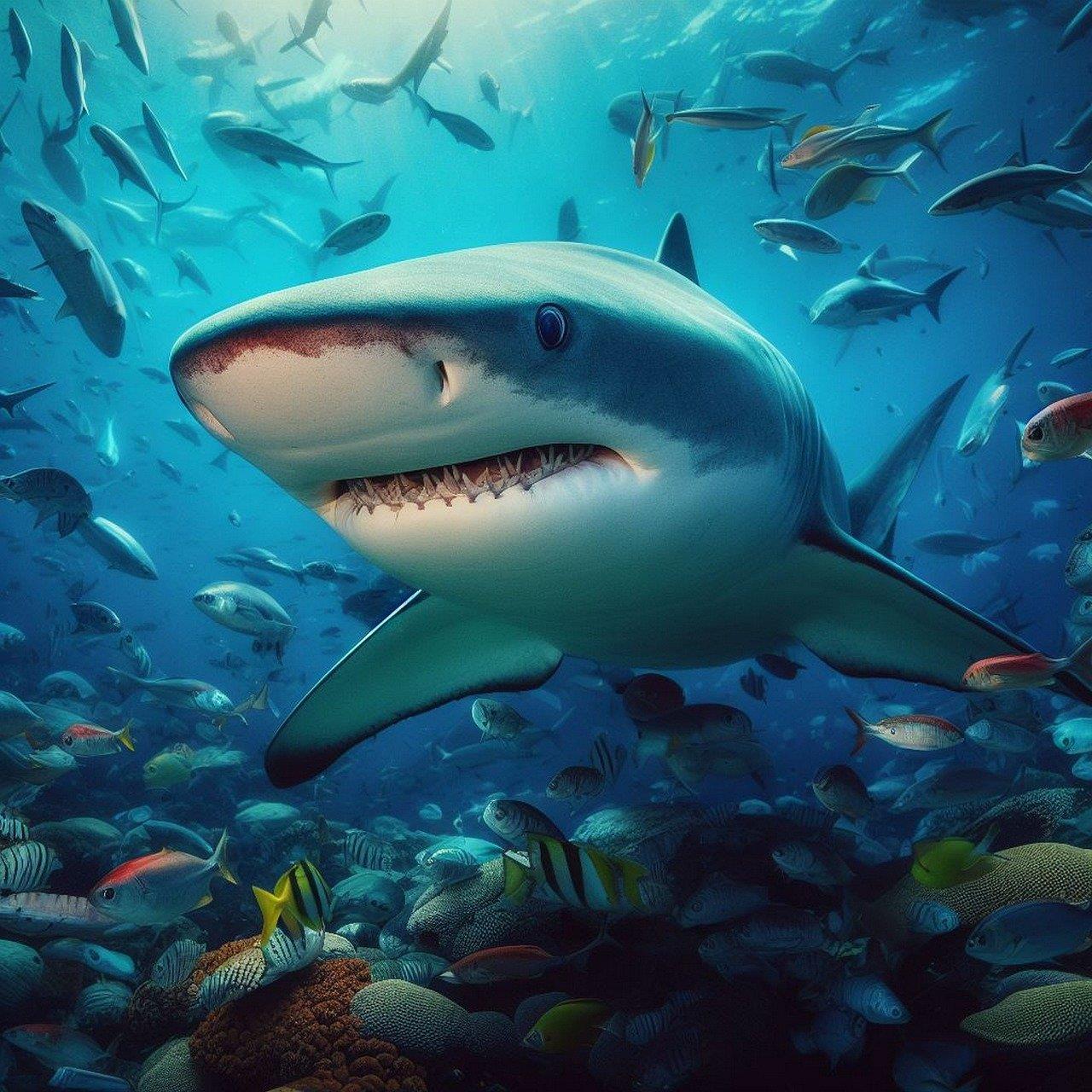
403
Sorry!!
Error! We're sorry, but the page you were looking for doesn't exist.
Study: Increasing Ocean Acidity Damages Shark Teeth Integrity
(MENAFN) A recent study published Wednesday in Frontiers in Marine Science highlights the damaging effects of increasing ocean acidity on shark teeth, raising urgent concerns about marine ecosystems.
As carbon dioxide emissions climb, oceans absorb more CO₂, driving down pH levels and making waters more acidic—a change that endangers numerous marine species.
“Shark teeth, despite being composed of highly mineralized phosphates, are still vulnerable to corrosion under future ocean acidification scenarios," said Maximilian Baum, lead author and biologist at Heinrich Heine University Düsseldorf in Germany.
Baum’s team gathered 600 naturally shed teeth from 10 blacktip reef sharks (Carcharhinus melanopterus) housed at the Sea Life Oberhausen aquarium in Germany. Sharks continuously lose and replace teeth, but the frequency varies widely among species—from days to weeks.
For the study, researchers isolated 16 intact teeth and 36 with minor damage, immersing them separately in two 20-liter tanks for eight weeks. One tank maintained seawater at pH 8.2, reflecting current ocean conditions, while the other contained more acidic water at pH 7.
Sebastian Fraune, senior author and professor at Heinrich Heine University, observed that teeth exposed to the acidic conditions exhibited “visible surface damage such as cracks and holes, increased root corrosion, and structural degradation” compared to those kept at pH 8.2.
The team warned that acid-induced tooth damage could impair sharks’ ability to capture and process prey, potentially affecting feeding efficiency and digestion.
Since the study only involved discarded, non-living teeth, it did not address potential repair or replacement mechanisms in live sharks.
Researchers pointed out that blacktip reef sharks swim with their mouths open, constantly exposing teeth to seawater. Even slight pH decreases may cause significant harm, especially in species with slower tooth replacement rates.
The findings suggest that microscopic damage to teeth could pose serious risks to sharks reliant on their dental health for survival.
“It’s a reminder that climate change impacts cascade through entire food webs and ecosystems,” Baum emphasized.
As carbon dioxide emissions climb, oceans absorb more CO₂, driving down pH levels and making waters more acidic—a change that endangers numerous marine species.
“Shark teeth, despite being composed of highly mineralized phosphates, are still vulnerable to corrosion under future ocean acidification scenarios," said Maximilian Baum, lead author and biologist at Heinrich Heine University Düsseldorf in Germany.
Baum’s team gathered 600 naturally shed teeth from 10 blacktip reef sharks (Carcharhinus melanopterus) housed at the Sea Life Oberhausen aquarium in Germany. Sharks continuously lose and replace teeth, but the frequency varies widely among species—from days to weeks.
For the study, researchers isolated 16 intact teeth and 36 with minor damage, immersing them separately in two 20-liter tanks for eight weeks. One tank maintained seawater at pH 8.2, reflecting current ocean conditions, while the other contained more acidic water at pH 7.
Sebastian Fraune, senior author and professor at Heinrich Heine University, observed that teeth exposed to the acidic conditions exhibited “visible surface damage such as cracks and holes, increased root corrosion, and structural degradation” compared to those kept at pH 8.2.
The team warned that acid-induced tooth damage could impair sharks’ ability to capture and process prey, potentially affecting feeding efficiency and digestion.
Since the study only involved discarded, non-living teeth, it did not address potential repair or replacement mechanisms in live sharks.
Researchers pointed out that blacktip reef sharks swim with their mouths open, constantly exposing teeth to seawater. Even slight pH decreases may cause significant harm, especially in species with slower tooth replacement rates.
The findings suggest that microscopic damage to teeth could pose serious risks to sharks reliant on their dental health for survival.
“It’s a reminder that climate change impacts cascade through entire food webs and ecosystems,” Baum emphasized.

Legal Disclaimer:
MENAFN provides the
information “as is” without warranty of any kind. We do not accept
any responsibility or liability for the accuracy, content, images,
videos, licenses, completeness, legality, or reliability of the information
contained in this article. If you have any complaints or copyright
issues related to this article, kindly contact the provider above.


















Comments
No comment